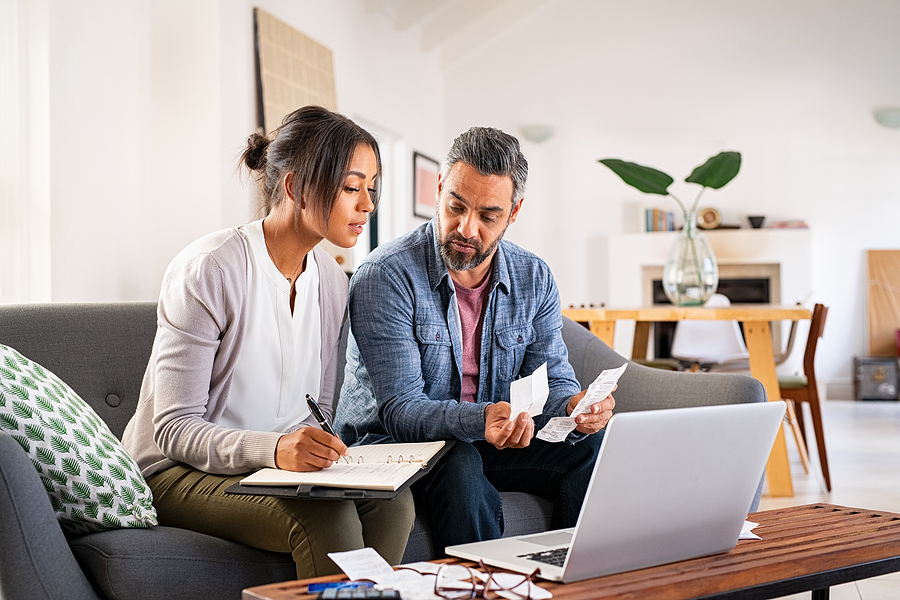It’s going to be ok
Recognising the need for Power of Attorney is a big step.
For some reason, everyone seems happy talking about making a will, but we all tend to ignore LPAs – sometimes until it’s too late – so deciding to make one takes strength.
Because it’s not forever in the public eye, unlike wills which seem to form the plot-point for every other legal thriller and TV detective drama, it’s natural to feel anxious about Power of Attorney – although most worries are unfounded.
Myths have built up around the subject, including the belief that Power of Attorney is included in your will (spoiler: it isn’t).
And many think that signing an LPA means giving up control. Which couldn’t be further from the truth. The legal document keeps you in control even when you’re not able to make decisions for yourself, and there are safeguards to ensure your instructions are carried out.
If you’re still trying to decide whether it’s the right choice for you, you might find it easier to discuss your situation with a solicitor.
It doesn’t matter why you want it
If you’re already reading up about Power of Attorney, then chances are you know why you need it.
Common reasons for making an LPA include:
- A serious medical illness or diagnosis
- Recently getting married, divorced, or separated
- Recently having children
- Buying or moving home
- Because you never know what’s around the corner
But it’s worth remember you can get it for any reason. Or no reason at all. There’s no right or wrong time. No good or bad reason.
It doesn’t matter how old you are, either. People tend to think of an LPA as something for older people. The sort of people prone to debilitating illnesses and hospital stays. Power of Attorney, however, is ideal for those unexpected moments in life, like a sudden, serious accident.
It offers a sort of insurance against the unpredictable for anyone over the age of 18.
And there are checks to make sure attorneys always act in your best interests.
The important thing is that you get it before you need it.
Timing is everything
You can only make an LPA while you have mental capacity. You must be able to understand your actions and make your own decisions, otherwise the LPA invalid (and could even be challenged in court).
So, if you’ve been diagnosed with dementia, you can still make an LPA. What it means, though, is that you need to act fast, before the illness strips away your capacity.
This is critical because when you don’t have a Power of Attorney in place when you actually need it, your loved ones will need to apply for a Court of Protection deputyship.
There are lots of differences between a Power of Attorney and deputyship. A deputyship order is highly restrictive, complicated to manage, and far more expensive. There are even annual fees and reports to be filled in by the person acting on your behalf (known as a deputy).
Talk to your loved ones
It’s one thing to sit up reading up about Power of Attorney. Talking about it is another matter. Just the idea of raising the subject with loved ones can make some feel a bit uneasy – after all, where do you start? How do you even bring it up in conversation in the first place? ‘Yes, it’s a lovely sweater, Jan, and by the way, I’d like you to act as my attorney…’
The advice is similar to starting a conversation when someone you love needs a Power of Attorney.
- Remember, it’s the right choice – there’s no reason not to make a Power of Attorney
- Get advice and talk to others – whether it’s others relative, close friends, a charity, or a solicitor, you can always sound out your ideas before approaching loved ones
- Do your research – you’ll feel more comfortable and find it easier to communicate what it all means, and you may find our Complete guide to Power of Attorney useful
- Check your attorney is happy to act on your behalf – you should choose someone who’s willing, trustworthy, and has your best interests at heart
- Listen – ultimately, the choice is yours, but hear out any objections, especially if that person is to become your attorney, with a bit of research, you will be able to bust those myths they might’ve heard
Research together
One of the best ways to get loved ones on board is to make it an activity. Ok, it’s not quite as exciting as going to the cinema or having a little takeaway night, but by going online together, looking at the information, and researching the topic together can bring you all together. No-one feels left out. Everyone understands what it all means.It might even be a good idea to suggest you each get an LPA. You can get Power of Attorney for a couple, which is quicker and less expensive than getting two at different times.
It’s easy to make Power of Attorney
It’s true- there are a lot of forms and signatures needed to make and register an LPA. But the process is incredibly easy when using a legal professional. A solicitor can help you get it right first time.
They’ll guide you through the process, ensure all documents are properly signed and valid, in order to prevent a challenge to the document at a later date. Everything will be included in the fees you pay your solicitor.
If you decide to do it yourself, you may find it a bit cheaper, but it can become a lot more complicated. Make sure you’re ready to commit some time to the process (not to mention making sense of all that legalese), and seek support if you find yourself struggling.
Use our quick quote form to find Power of Attorney solicitors near you. You’ll only see results tailored to the legal service you need and a free, no-obligation quote, so you can find the legal professional that’s right for you.






